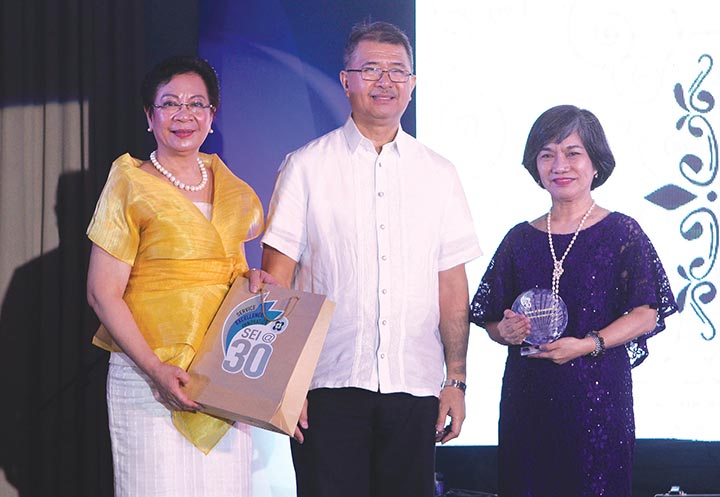The European Union will begin this October a review of the Philippines’s compliance with 27 international treaties and conventions to determine whether the country can continue enjoying trade perks under the EU-Generalized System of Preferences Plus (EU-GSP+).
Trade Secretary Ramon M. Lopez, who came from a visit to the EU Commission in Brussels last week, said he presented the benefits that the Philippines and European countries reaped since the EU-GSP+ went into effect in December 2014.
“We presented a report, more of a general, macroeconomic picture, that our exports increased to the EU,” Lopez said in an interview with reporters.
He also said he is confident that the Philippines will continue to enjoy trade perks under the EU-GSP+ scheme following his visit to Brussels. Pivotal to the EU Commission’s review is the Philippines’s compliance with 27 international treaties and conventions.
Every two years, the commission presents to the European Parliament and the Council a report on the status of ratification of the respective conventions, the compliance of beneficiary countries with any reporting obligations under those conventions and the status of the implementation of the conventions in practice.
The commission has just wrapped up a midterm consultation of the GSP+, and will forward all relevant documentation to the Parliament and Council by January 1, 2018.
Among the treaties and conventions that Manila must adhere to are the International Labour Organisation and United Nations Human Rights conventions.The conventions include the International Covenant on Civil and Political Rights, which has been tagged as early as 2015 by the European Union Commission as being “weak in implementation” in the Philippines.
Lopez said the visit to the EU body, aside from showing the significance of the scheme to the country, was to assure the Philippines’s adherence to the conventions amid reports of extrajudicial killings supposedly perpetrated by rogue policemen.
“They want to check if the Philippines is still complying with the conventions, and part of those involve labor and human rights. That’s why we had to go there—to give them facts and more correct information rather than sensationalized news of international media”, he said. Lopez added the country’s utilization rate of the EU-GSP+ has shown “significant improvement” since 2014.
The Philippines was granted GSP+ on December 25, 2014—providing zero-tariff treatment for two-thirds of export products (tariff lines) to the EU.
Total exports to the EU that were eligible under GSP in 2014 amounted to €1.7 billion, or some 30 percent of total exports to the EU. Actual utilization rate was around 68.3 percent, or €1.15 billion. The EU generally accounts for 14.9 percent of the Philippines’s total exports.
More than losing the trade perks that have aided the country buck the global trade
slowdown, Lopez said delisting the Philippines from the GSP+ scheme would put at risk its efforts to secure a free-trade agreement (FTA) with the EU. “The EU-GSP+ and the FTA are interlinked. We made a presentation to show the GSP is able to meet its objective of helping the beneficiary country. If the GSP is working well, there’s a better discussion of an FTA”, Lopez added.


































